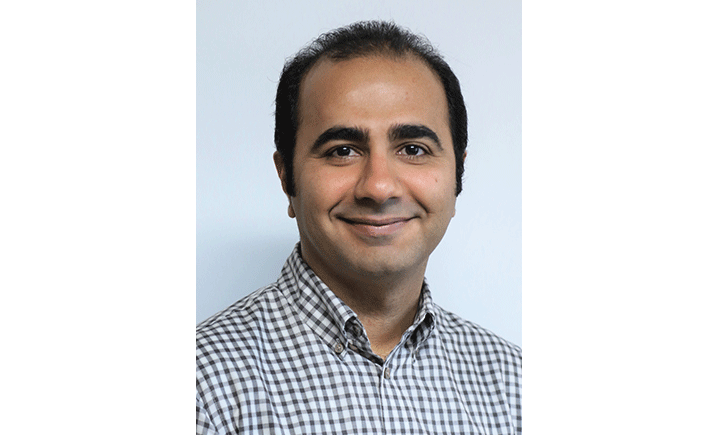Detecting covert communications with machine learning tools
Graduate student Mehdi Boroumand will receive a Graduate Student Award for Excellence in Research for his novel combination of artificial intelligence, steganalysis and forensic analysis.

Mehdi Boroumand is a PhD student studying electrical engineering who recently won a Binghamton University Graduate Student Award for Excellence in Research.
The award is in recognition of his research on detecting covert communications in digital images that Boroumand has worked on with distinguished professor Jessica Fridrich, who nominated him for the award.
In her nomination letter, Fridrich gave Boroumand high praise saying he was “among the most exceptional PhD students I have ever had the pleasure to work with.”
Boroumand’s research used the tools of machine learning to build a new network architecture that can find the presence of hidden messages in digital images that are often used in covert communications as a cover medium.
As Fridrich described it, “[Boroumand] used the tools of modern artificial intelligence called deep convolutional neural networks to design a ground-breaking network architecture with universal applicability to a rather wide range of problems in multimedia security ranging from detection of secret communication (steganalysis) to establishing the processing history and integrity of digital images (forensic analysis).”
Steganalysis tries to detect images embedded with hidden information, and digital forensics tries to distinguish between images that have been manipulated and authentic ones.
“Deep neural networks have had stunning success in many fields such as computer vision and natural language processing, and we successfully utilized this powerful machine-learning tool for our research,” said Boroumand.
Boroumand went above and beyond as a graduate student, which is what helped him win this prestigious award.
“As a Research Assistant, Mehdi fundamentally contributed to two projects funded by the Air Force Office of Scientific Research and DARPA,” said Fridrich. “Mehdi’s work has appeared in five journals and fully refereed articles and three international conference publications. His papers will form the backbone of his PhD Dissertation that will be submitted to the committee members [this] year when he is anticipated to defend his PhD thesis.”

